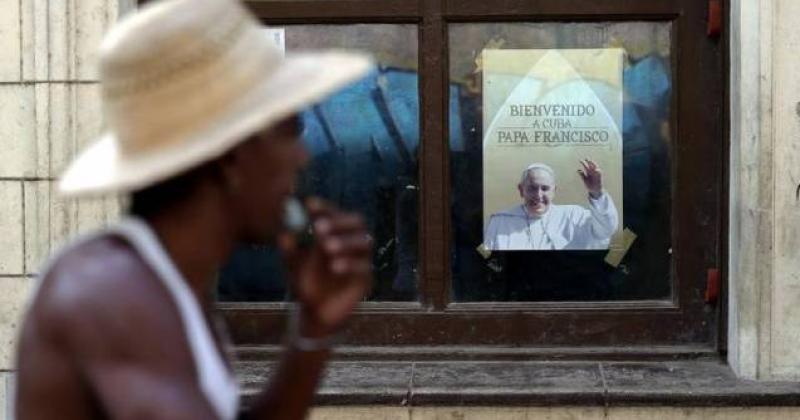The first ever Latin American Pope will visit the Caribbean island and the US for the first time, amid hopes, controversies and challenges.
The journey Francis will embark on tomorrow, Cuba and US bound, is a journey laden with expectations, meanings and challenges. The Cuban leg had not originally been scheduled in but was added in light of the thaw in relations between Havana and Washington, spurred by the Holy See’s patient diplomatic efforts. The Caribbean island - where the local Church is trying to encourage the transition towards a more open and democratic future - is typical of the kinds of destination the Pope prefers: small nations where his presence can help set in motion or consolidate positive processes. Ecuador, Bolivia and Paraguay were cases in point and so are the African countries he is due to visit in November.
Francis is the third Pope in 17 years to be going to Havana after the historic visit of John Paul II who was welcomed by Fidel Castro and the more recent visit of Benedict XVI in 2012. The Holy See under the current pontificate, like the two previous ones, is still calling for an end to the economic embargo that is impoverishing the nation. Every papal visit to the island was accompanied by controversies regarding what the Pope said or did not say as well as failures to meet the Cuban opposition. Unlike other Popes, Francis has the advantage of his Latin American background in addition to his pontificate’s special focus on poverty and social justice. Although he has never visited the island, the Pope is well aware of the situation on the ground and also held an audience in the Vatican with the widow of dissident Oswaldo Payá, who died in a suspicious car accident in July 2012.
The papal visit to the US is altogether of a different nature and is motivated by the World Meeting of Families in Philadelphia. It is not surprising that some of the toughest criticisms came from US commentators and intellectuals, including Catholics, who claim he has not grasped the importance of US capitalism. The Pope never questioned the free market or capitalism, nor did he propose new recipes for the economy. Rather, he called out strongly for structural changes to an “economy that kills”, meaning an economic and financial system that worships money and fosters exclusion and waste. His remarks and questions about the current development model were considered excessive by those who believe that the Church’s role is to engage first and foremost in cultural battles on issues relating to life and family. As if the fight against poverty, the efforts to achieve a fairer economy and to promote care for creation for the benefit of our children and grandchildren are not ways of defending life. When he arrives in the US, a country he has never been to before, Francis will address Congress, a privilege his predecessors were never given. Barack Obama will receive him at the White House and he will speak at the United Nations. The son of Italian immigrants, this Pope, who is Latin American like the many Latinos who try to cross the US border in search of a better future, will speak in the country if freedom and opportunity which migrants founded and made great. Francis will ask this country that plays and important and powerful role on the international stage, to work harder for world peace ad less military interventionism.
But it would be a mistake to consider the political aspect the keynote of a visit that is first and foremost pastoral: What Francis wants above all is to embrace faithful and the Cuban and North American people, using gestures more than words to communicate the importance of “pastoral conversion”. This message of conversion was sent out to the entire Church and the State Department and the White House fully understand its importance, as is proven by the confidential documents Italian newspaper La Stampa recently published: his meetings with families, the homeless, prisoners and migrants will be examples of this and will be the core of his message.
